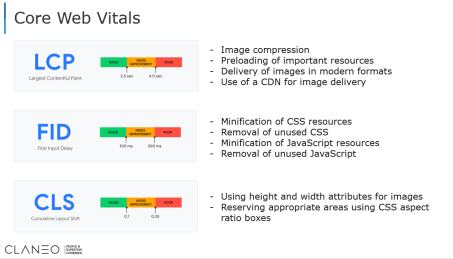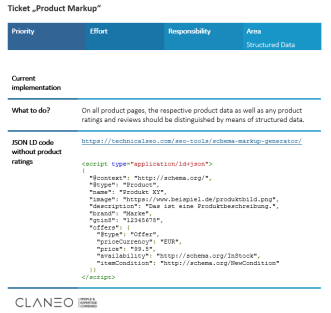Top 6 SEO tips for eCommerce websites in 2021
Written by
Editorial TeamPublished on

The importance for eCommerce websites to rank at the top of search engines continues to grow. While paid searches can lead to quick success, they are very costly in the long run.
This is where search engine optimization (SEO) comes into play: SEO describes measures that help online shops to appear as high as possible when relevant search terms (keywords) are entered on search engines like Google & Co. The higher a website ranks, the more visible it becomes for potential customers. When done right, eCommerce SEO is cost-effective, highly profitable and produces long-term, sustainable results.
In this article, we reveal what is important in eCommerce SEO, what SEO benefits are, and how even small adjustments can get you into the top rankings.
#1: Adopt a user-first approach to SEO
A user-centric SEO strategy ensures that the focus is on the target customer. It is extremely important to optimize all areas for the users and not only for the search engines because in the end it is the user who decides whether and where to make a purchase:
• Strategy: Understand what interests the customer and create compelling copy
• Technology: Create a good user experience for the customer
• Content: Provide the right content • Offpage: Share your own content on the internet
• Offpage: Share your own content on the internet
#2: Aim for high content quality
In the content area, the requirements from the E-A-T area come into play. E-A-T (Expertise, Authoritativeness, Trustworthiness) influences the ranking, but is not the only ranking factor. Rather, Google uses these criteria to determine whether a website is trustworthy or not.
Even if the E-A-T criteria are used more in areas of YMYL (Your Money or Your Life) topics, this can also be a good way in eCommerce to strengthen trust in one’s own online shop. Additionally, E-A-T criteria are also used to increase the user-friendliness of a site. However, it should always be the main goal to convince the user of the products and not just the search engine.
#3: Consider user friendliness as a ranking signal
The disciplines strategy, technology, and content result in the common area of page experience. The Core Web Vitals play a major role here as ranking signals within the Page Experience. Google uses the Largest Contentful Paint (LCP), First Input Delay (FID), and Cumulative Layout Shift (CLS) metrics to evaluate the user experience on a website. If an online shop has a high loading speed and good performance, it has a good chance of ranking better.1

Figure 1: Core web vitals are quality signals that are essential to delivering a great user experience.
#4: Use structured data
In technology, the most important fields in eCommerce are clearly the use of SEO tools and structured data, as well as pagespeed optimization and page experience optimization, which is based on technical principles.
Structured data is used to mark up content on web pages for search engines to help them read and interpret the content. Structured data is also easy to integrate, free, and can provide a huge competitive advantage. The more Google knows about a website, the easier it can be evaluated, which can also improve its ranking position.

#5: Reduce the bounce rate by optimizing pagespeed
The demands on eCommerce are becoming increasingly important in the area of pagespeed, as the bounce rate correlates strongly with the loading speed of a store. Furthermore, due to mobile first and the general user statistics of shops and also other sites, the majority of organic search is completed mobile, which leads to greater demands on the loading speed of the page.
#6: Foster trust and authority of a webpage
Similar to the requirements for our content, the trust and authority of a page plays an increasingly important role in the offpage area. Backlinks, i.e. links from external pages, are indicators for the search engine that our page is both trustworthy and more authoritative than pages with fewer backlinks. Since trust, as well as authority of a page influence the rankings, pages with a better backlink management structure are preferred over those that have fewer backlinks with comparable content.
To sum up
As shown, SEO contributes a large part to the success of online stores in eCommerce and even small adjustments can lead to increased visibility.
The following checklist should be a good help and support online shops on their way to success:
• Optimize for the users
• Produce high quality content
• Ensure a good technical setup • Optimize for mobile
• Optimize for mobile
• Use structured data
• Create backlinks

About the author Paul Labetzke is part of the consultingteam at Claneo, a search, performance and content marketing agency based in Berlin. In his role as a consultant, he advises companies in the field of search engine optimization from strategy to operational implementation. He supports start-ups, SMEs, and corporations in generating more and more relevant search engine traffic.


